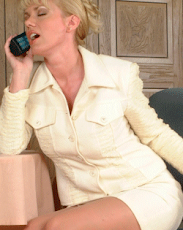'Sexsomnia' made in Canada
Posted Tue, Jul 07, 2009
POST A COMMENT »
This week, Jan Luedecke the Toronto landscaper who was acquitted in 2005 for sexually assaulting a woman because he was sound asleep at the time of the assault, was scheduled to appear before a panel to determine if he should have any long-term restrictions on his freedom.
Instead the panel ordered Luedecke undergo a 'full and complete risk assessment' before making their decision.
'Sexsomnia,' like insulin, five-pin bowling and the term 'cougar,' is a Canadian discovery. I first heard about it at a sexuality conference in Guelph several years ago when Dr. Paul Fedoroff, a forensic psychiatrist in Ottawa presented research suggesting that stress, chronic sleeplessness, or alcohol or drug abuse may lead a person to engage in sexual behaviour while sound asleep.
The research, which Fedoroff completed with co-researchers Dr. Colin Shapiro and Dr. Nik Trajanovic of the University of Toronto first appeared in 1996 in a paper called 'Sexsomnia - A New Parasomnia?' that was published in the Canadian Journal of Psychiatry in June 2003.
It was good timing for Luedecke as it was the wee hours of house party in July 2003 when a woman woke up on the couch to find Luedecke having sex with her. He was found not criminally responsible for the assault because he was asleep at the time He testified that he had been overworked, overstressed, sleep-deprived, taken magic mushrooms and knocked back a whole bunch of booze, pretty much in line with Fedoroff et al's definition of 'sexsomnia.'
As bizarre as this all sounds, Luedecke's case is not the first.
In December of 2005, a British man was cleared of three counts of rape because he suffered 'sexsomnia' and wasn't conscious during the act. In August of 2007, a British mechanic was cleared of a rape charge after the jury found him not responsible for his actions when he had sex with a 15-year-old girl while asleep. And it's not just a guy thing. In 2004, an Australian woman was reportedly leaving her house at night and having sex with strangers while sleepwalking.
Any type of sleepwalking is rare, occurring in about 3% of children and young adolescents, and 0.5% of adults. According to research, 4% of adults who suffer from the condition carry out sexual behavior.
Luedecke's assessment, to be carried out at Centre for Addiction and Mental Health in Toronto, will be completed by Aug. 28. Based on this, the panel can then decide whether or not he should be committed to hospital, or to place certain conditions on his release such as refraining from drug or alcohol use.
What do you think? Do you thing 'sexsomnia' is a legitimate defense against sexual assault?
Wednesday, 8 July 2009
Subscribe to:
Comments (Atom)





